Agenda
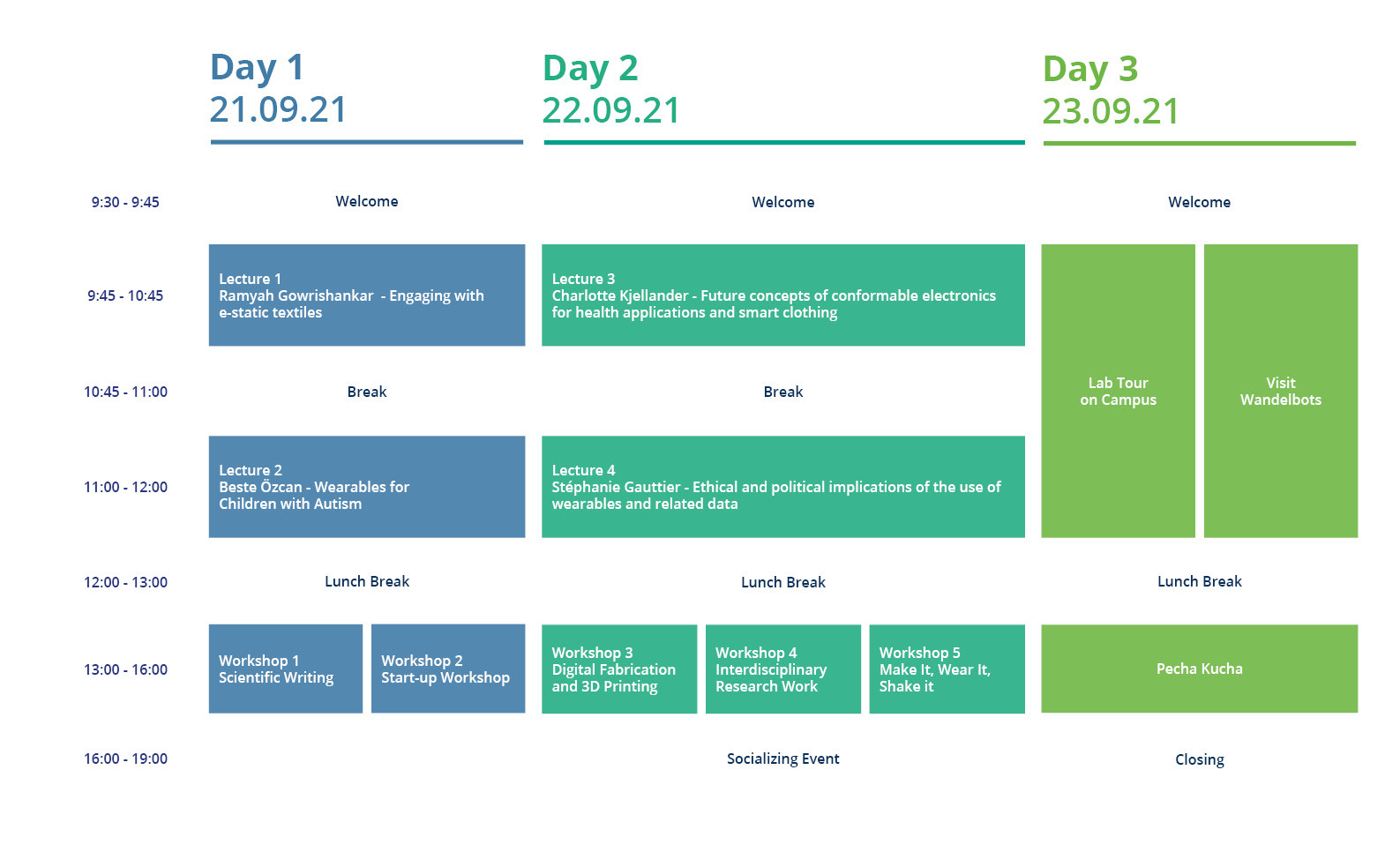
Lectures (online)
Lecture 1: Engaging with e-static textiles
Ramyah Gowrishankar has a doctoral degree (Dr.-Ing.) from the University of the Arts Berlin. She graduated with a Master of Arts degree in New Media from Media Lab Helsinki, at Aalto University in December 2011, after which she worked as a researcher at the Embodied Design Research Group at the Department of Design in Aalto ARTS. In July 2015, she was accepted for a research position in the ArcinTex European Training Network program and moved to the Design Research Lab at UdK Berlin as a PhD candidate. She completed her doctoral degree with distinction in the research field of HCI with a focus on e-textiles in November 2020.
Ramyah’s education and work experience have been multi-disciplinary in nature and she has worked on many collaborative projects in domains ranging from visual communication, tangible interaction design, filmmaking, animation to interactive & mobile media along with electronic and smart textiles.
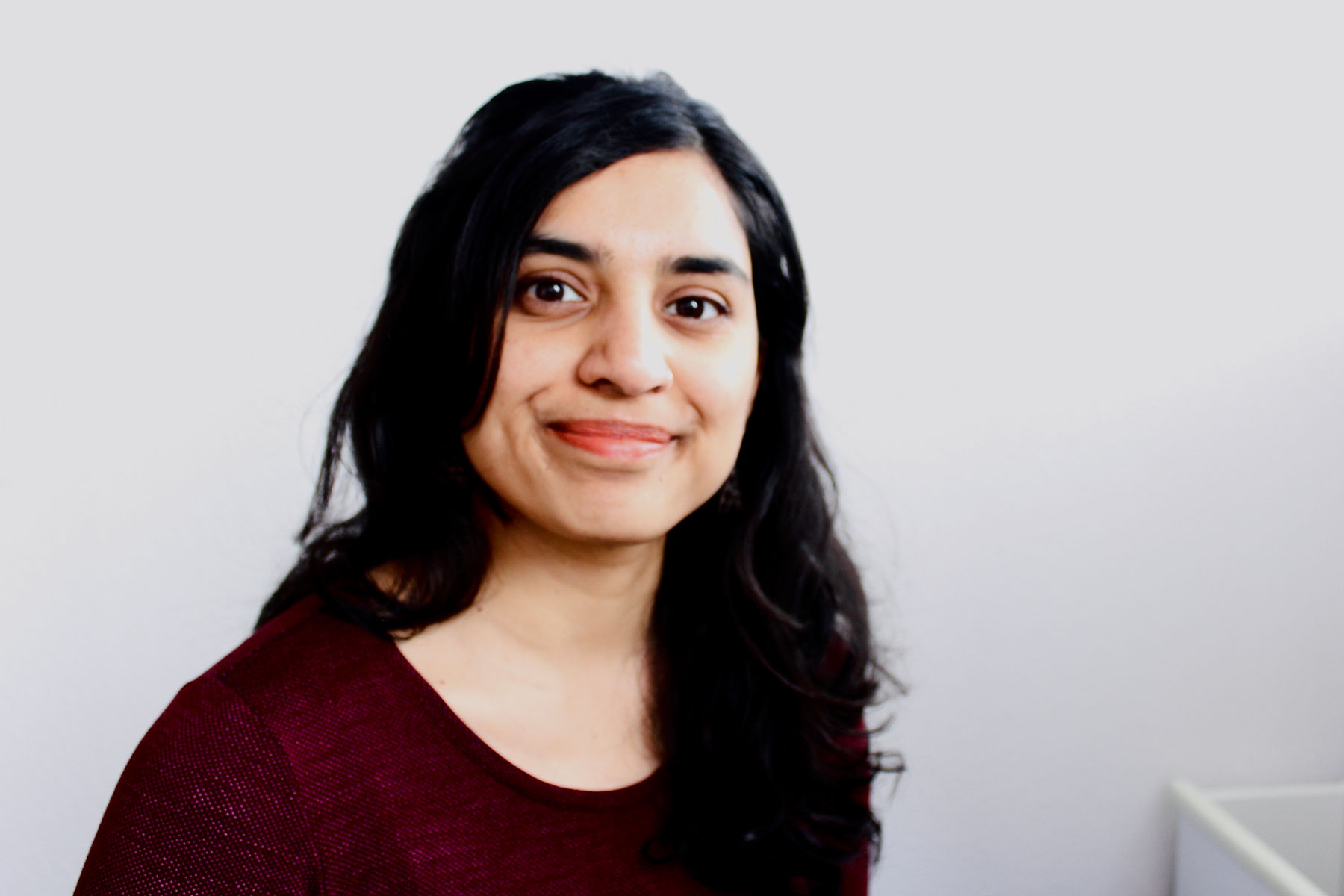
Ramyah Gowrishankar
Lecture 2: Wearables for Children with Autism
Beste Özcan is a designer and postdoctoral research fellow at the Institute of Cognitive Sciences and Technologies, National Research Council of Italy (ISTC-CNR) mainly working on multisensory wearable smart devices to augment human connectedness. She is the founder of “Transitional Wearable Companions (TWCs)” concept, brand, and its first applied award-winning prototype called “+me (PlusMe)”, which is a particular type of wearable social companion for children with Autism Spectrum Disorders (ASD) and “IM-TWIN system” concept, which is an AI based system for smart therapy of children with ASD. She is also interested in developing other types of experimental smart devices to augment empathy and reduce anxiety of humans. She is the author of the book “H+ design: time, space, human, machine”.
She has her PhD in design and innovation at the Vanvitelli University, Naples. During her international PhD program, she worked as a visiting researcher at the University of Malaga and the University of Lisbon for one year. After finishing her PhD, she also collaborated with the University of Ramon LLull La Salle, Barcelona and The University of Rome, Sapienza for one year. Her main research interests are social robotics, social-emotional interaction, children, wearable computing, social innovation through human and machine hybridity.
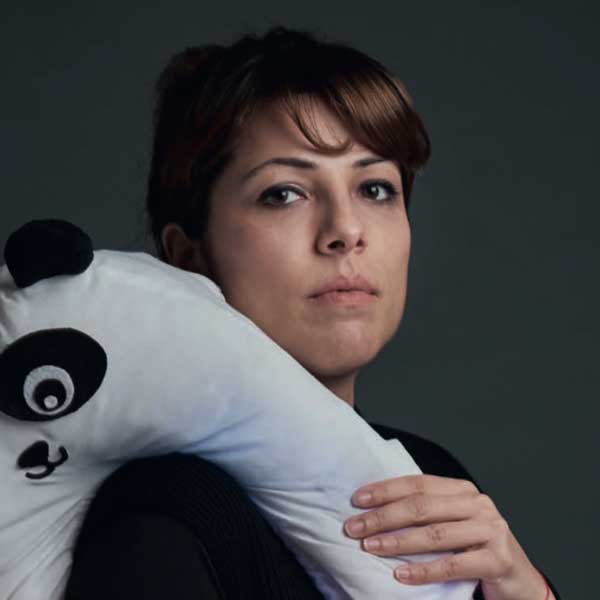
Beste Özcan
Lecture 3: Future concepts of conformable electronics for health applications and smart clothing
Charlotte Kjellander received her MSc in Chemical Technologies in 2001 from Lund Institute of Technologies, Lund University, Sweden, including studies at EPFL, Switzerland, and her PhD in Materials Sciences in 2006 from Eindhoven University of Technology, the Netherlands. Professional interests include materials research of organic and polymeric materials for optical and electrical applications, haptic and tactile materials for augmented experiences and large-area coating technologies. Her work has resulted in several patents and peer-reviewed articles. Currently, at the Holst Centre, Charlotte leads the wearable electronics group that develops future concepts of conformable electronics for health applications and smart clothing.
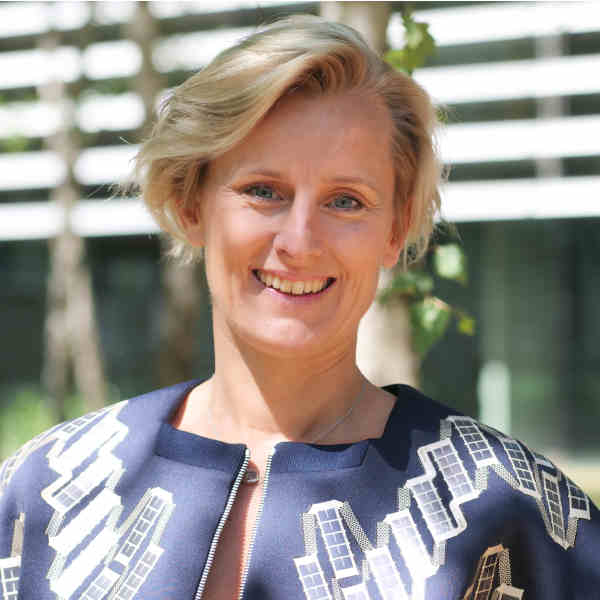
Charlotte Kjellander
Lecture 4: Ethical and political implications of the use of wearables and related data
Stéphanie Gauttier is Assistant Professor at GEM doing research at the intersection of information systems, human-computer interaction, and ethics.
She was awarded an individual Marie Curie fellowship in 2018 for a project on the use of wearables as a stress management tool in the workplace. Her research focuses on the ethical and political implications of the use of wearables and related data.
Stéphanie received her PhD in Information Systems Management from the University of Nantes. She has a masters in Political Sciences and a masters in Communication Sciences, and over five years of experience in the marketing industry. As a result, her research crosses disciplines and was applied to consumers (PhD), learners (EDUWORKS), and more recently to the healthcare domain (Responsible-Industry and GLASNOST).
Stéphanie was nominated on the list of 400 women in the NL across all industries in the “bright mind” category in 2018, and received the Brenner award for her work in Q-methodology in 2019.
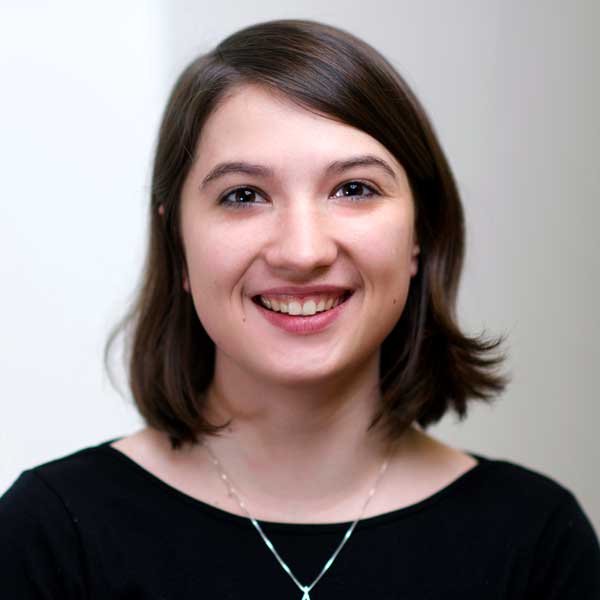
Stéphanie Gauttier
Workshops
Workshop 1: Start-up your science!
(on site, 8 seats)
Do you have a start-up idea from your research work? In our practical workshop, we develop your idea into a user-centric solution, including an initial business model. Value proposition, target group, revenue model – we fill these terms with content.
Depending on the overall situation, the workshop will take place either in person or online by using Miro 8. The number of ideas is limited to 8. You are welcome to apply as a group or individually.
Workshop 2: Scientific Writing, Barbara Könczöl
(online, 12 seats)
During your dissertation project, you will be confronted with a plethora of material – research literature, collected data, drafts etc. Structuring and weaving a read thread through your dissertation can be challenging. This workshop will introduce you to different techniques for finding a suitable structure and give you the opportunity to try them out.
Participants are invited to bring an outline of their dissertation/chapter or other texts to this workshop.
Workshop 3: Interdisciplinary Research Work, Anna Kollenberg
(online, 15 seats)
The participants will learn methods and approaches of interdisciplinary work and interdisciplinary project management. After this workshop the participants will be able to apply these methods independently.
Questions and fields of the following topics will be dealt with:
Interdisciplinary and cross-disciplinary work
- How do subjects and disciplines differ from each other? Thematically and methodologically?
- What are the challenges of interdisciplinary and cross-disciplinary projects?
- What are the opportunities and advantages of interdisciplinary research and work?
Methods and structures of interdisciplinary cooperation
- Rules of the game and goals for successful interdisciplinarity.
- Working approaches and fundamentals with regard to the dimensions of research object, method, problems, level of theoretical integration and persons/institutions and use them for project management in an interdisciplinary context.
Workshop 4: Digital Fabrication and 3D Printing
(online)
Digital fabrication processes have become increasingly popular in recent years, both in business and research as well as in the private sector. However, how these technologies work is still far from being common knowledge, although corresponding expertise is increasingly in demand. The focus of this workshop is the practical application of digital fabrication methods.
Examples from current research will be used to explain the various fabrication methods, their properties and applications.
Subsequently, the practical part will deal with the creation of 3D models for 3D printing. The basics of parametric design will be explained using the free CAD software Fusion360. The models designed by the participants are then transformed step by step into a physical object.
At the end of the workshop, participants will be familiar with the basics of digital fabrication and will be able to create simple three-dimensional objects and prepare them for 3D printing.
Workshop 5: Make It, Wear It, Shake it (Thomas Gnahm)
In this 3 hour workshop we will create an interactive LED bracelet that reacts to movement. We will sew together a smart bracelet with conductive yarn and electronic components. You don’t need any previous technical knowledge. If you dare, you can also go one step further and reprogram your bracelet yourself.
If the Corona situation permits, the workshop will take place on site, otherwise it can also be organised online.
Lab Visits (on site)
You have two options for visits to the lab or CeTI partners: Lab tour on campus OR visit Wandelbots.
We will split the groups on campus into two groups. One will go to ITM first and the other to circuits and flexible electronics. After that we will swap.
The group that goes to Wandelbots will stay there the whole morning.
TOUR 1
Stop 1: Institute of Textile Machinery and High Performance Material Technology
You all know our glove!
On our lab tour, we will show you the path from yarn to smart textile and much more about functionalized textiles. You will also have the chance to explore the world of textiles in practice.
Where?
Walter-Frenzel-Bau der TU Dresden
George-Bähr Straße 3c
Stop 2: Circuit Design
In our lab at the Chair of Circuit Design and Network Theory we verify the functionality of our designed electronics. Most of the time, we are designing very small microchips (e.g. 0.5 mm x 0.3 mm). When you are opening an electronic device you will typically find such microchips in a black package mounted on a printed circuit board (PCB). If you want to get an idea how an unpackaged chip looks like under the microscope and how such a chip can be tested, join our lab tour.
Meeting point: At the fountain in front of the Barkhausen Bau, Helmholtzstraße 18, 01069 Dresden
Important note: The current corona regulations allow only 4 people at a time in our lab. If the regulations remain this strict a lab tour is not possible.
Stop 3: Electronic Packaging Technology
At the Institute of Electronic Packaging Technology we integrate the microchips to a package followed by a mounting process on printed circuit boards to an electronic module. Today these modules must not be rigid, furthermore they can be three-dimensional, flexible or stretchable in order to support many applications. If you want to get an idea about the different technologies to build up such an electronic system, join our Lab tour.
Meeting Point: At the fountain in front of the Werner-Hartmann-Bau, Nöthnitzer Str. 66, 01069 Dresden
Important Note: The current corona regulations allow only 4 people per group at a time in our Lab. Two groups are possible. If the regulations remain this strict a Lab tour is not possible.
TOUR 2
Demonstration is the new programming.
Programming becomes teaching: With the Wandelbots Teaching Solution, anyone is able to teach a robot without programming a line of code.To teach a robot with the Wandelbots solution, only 3 simple steps are needed:
(1) The user performs the activity they want the robot to learn using an input device (the TracePen) as an example, while the robot’s movements are recorded in real time in space.
(2) The intuitive user interface of the Wandelbots app makes the path and sequence editable so that keyframes can be adjusted, settings can be controlled and I/Os (for end effector movements and functions) can be controlled.
(3) Once completed, the skill is converted into immediately executable, vendor-specific code that runs on the robot.
Pecha Kucha (online)
PechaKucha (Japanese for “chit chat”) is the world’s fastest-growing storytelling platform, used by millions around the globe. PechaKucha is what “Show and Tell” always dreamed of becoming.
20 slides. 20 seconds of commentary per slide. That’s it. Simple. Engaging. Spurring authentic connections.
Have you always wanted to know what others at CeTI or in the scientific community are working on? Here’s your chance. In this entertaining format you will get exciting insights into research. But not only listeners are welcome. We are very happy if you want to present your research in front of an audience. There is even a prize for the best presentation.
Socialising Event (on site, outside)
Escape Game. A spectacular criminal case awaits you. You will investigate together in groups on the TU Dresden campus. Lots of action, puzzles and fun await you. After solving the case and the subsequent award ceremony, we can enjoy a barbecue together. More information to follow.
Hiking
In order to recover actively after so much scientific input, we invite you to a joint hike in Saxon Switzerland. Hrjehor has come up with something very special. We would be delighted if you would join us for the hike.













